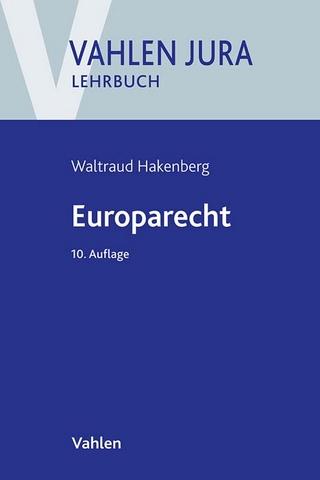
Contractual Relations
Oxford University Press (Verlag)
978-0-19-885515-6 (ISBN)
Written by one of the leading contributors to the relational theory of contract, Contractual Relations authoritatively explains the form of the existing law of contract by relating it to its economic, legal, and sociological foundations.
This volume demonstrates that economic exchange and legal contract rest on a moral relationship by which each party legitimately pursues its self-interest through recognition of the self-interest of the other. This essential relationship of mutual recognition is in stark contrast to the pursuit of solipsistic self-interest that is central to the classical law of contract. Self-interest of this sort is not morally defensible, nor does it enhance economic welfare. It is for these reasons that the classical law is legally incoherent. The fundamental inadequacies of the classical law's treatment of agreement, consideration, and remedy have emerged as the doctrines of the positive law of contract have been progressively developed to give effect to the relationship of mutual recognition.
The welfarist criticism of the classical law has, however, failed to develop a workable concept of self-interest, and so is at odds with what must be retained from the classical law's facilitation of economic exchange and the market economy. The relational law of contract restates self-interest in a morally, economically, and legally attractive manner as the foundation of the social market economy of liberal socialism.
Contractual Relations is a fundamental critique of the classical law of contract and the welfarist response to the classical law, and a major statement of the relational theory of contract. This is an essential work for academics, advanced students, and others wishing to understand the fundamental law, economics and sociology of contract and exchange.
David Campbell was educated at Cardiff University, UK (BSc(Econ) 1980), the University of Michigan School of Law, USA (LLM 1985), and the University of Edinburgh, UK (PhD 1985). Since 1985, he has taught at several British universities and in Australia, Hong Kong, Japan, New Zealand, Spain, and the USA. He is now a Professor at the Lancaster University School of Law, UK. Professor Campbell has written extensively on a wide range of legal and social-scientific issues. He is a leading contributor to the law of contract, particularly to 'the relational theory of contract', and to the economic, legal, and social theory of regulation.
Part 1: Introduction: Economic Exchange and Legal Contract
1: Choice, Mutual Advantage in Exchange, and Freedom of Contract
2: Exchange, Relational Contract, and Mutual Recognition
Part 2: The Relational Constitution of the Law of Contract
3: The Relational Constitution of Agreement (1): From Caveat Emptor to Caveat Venditor
4: The Relational Constitution of Agreement (2): Business Efficacy and Good Faith
5: The Relational Constitution of Bargain (1): Formalism, Substance and Good Faith in Consideration
6: The Relational Constitution of Bargain (2): Procedure and Fairness in Consideration
7: The Relational Constitution of Bargain (3): Fairness in Legislation and Common Law
8: The Relational Constitution of Remedy (1): Performance and Expectation
9: The Relational Constitution of Remedy (2): Literal Enforcement as a Substitute for Damages
10: The Spectrum of Contracts: Presentiation and Adjustment
Part 3: Conclusion: The Nature of Economic Action and the Nature of the Law of Contract
11: Absolute Knowledge of the Law of Contract
12: The Maximalist Welfare State, Inchoate Communism, and Betterment
| Erscheinungsdatum | 30.09.2022 |
|---|---|
| Verlagsort | Oxford |
| Sprache | englisch |
| Maße | 162 x 240 mm |
| Gewicht | 854 g |
| Themenwelt | Recht / Steuern ► EU / Internationales Recht |
| Recht / Steuern ► Privatrecht / Bürgerliches Recht | |
| Wirtschaft ► Allgemeines / Lexika | |
| Wirtschaft ► Volkswirtschaftslehre | |
| ISBN-10 | 0-19-885515-X / 019885515X |
| ISBN-13 | 978-0-19-885515-6 / 9780198855156 |
| Zustand | Neuware |
| Informationen gemäß Produktsicherheitsverordnung (GPSR) | |
| Haben Sie eine Frage zum Produkt? |
aus dem Bereich


